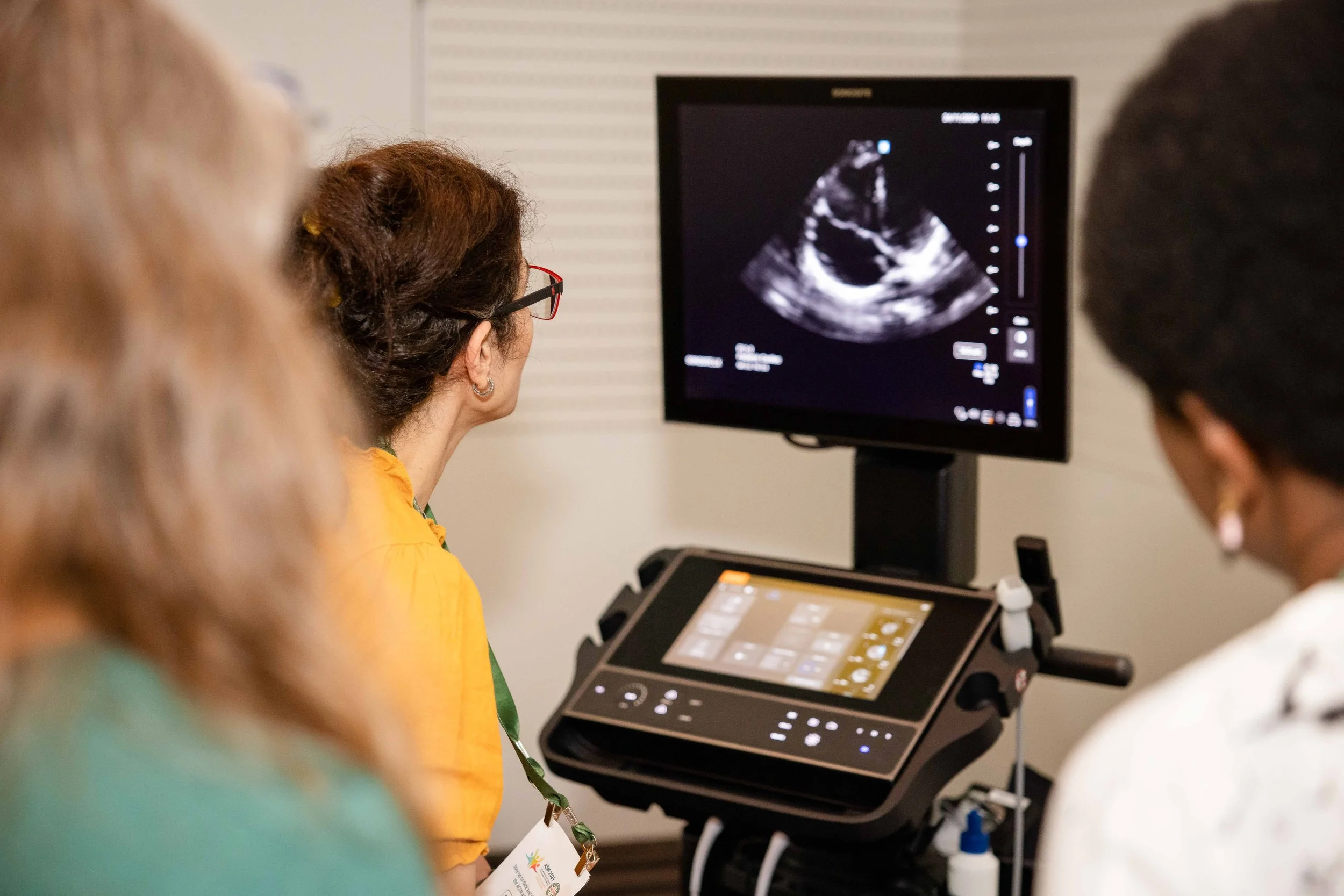FACEM Dr Krupa Mehta, Staff Specialist at the Campbelltown Hospital and a Retrievalist for the Westpac Rescue Helicopter and the Royal Flying Doctor Service, shares some insights with YourED about her pathway to becoming a recent Fellow.
All tagged Emergency Department
Celebrating 25 years of emergency medicine as a specialty in PNG
Emergency medicine as a speciality is turning 25 years old in Papua New Guinea. EM trainee Dr Ulysses Oli, a final-year candidate of the Masters of Medicine in Emergency Medicine (MMed EM) program at the University of Papua New Guinea, currently working at the Port Moresby General Hospital ED, reflects on what this means to him.
Diagnostic safety and excellence
Associate Professor Carmel Crock travelled to Geneva, Switzerland to attend the World Health Organization (WHO) global consultation for World Patient Safety Day 2024. Read her reflections on the event one year later, including how emergency departments can optimise diagnostic safety and excellence.
'Being here has made me fall in love again with emergency medicine'
“He aha ta mea nui o te ao? What is the most important thing in this world?
He tangata, he tangata, he tangata. It is people, it is people, it is people.”
This was the enduring message for around 100 delegates who made the journey from around Aotearoa, Australia, Canada, and the United States to attend the Aotearoa New Zealand Emergency Medicine Conference 2025.
GEC Scholarships creating change
Dr Mangu Kendino, 2019 GEC Scholar now serving as emergency physician and director for emergency medicine training at Port Moresby General Hospital, has words of wisdom to share with new scholars about the benefits of the program.
Compassion as our core in the ED
This isn’t a piece about being nice. It’s about choice, about what it means to care when it is hard to care. Not when things are calm, but when someone’s screaming, the phone won’t stop, and another trolley rolls in. Because this is where it matters most.
The smell of smoke in the ED: reflections on bushfire season
As summer heats up, YourED reflects on the impact bushfires can have on the entire community, and the medical professionals working in emergency departments across Australia and Aotearoa New Zealand.
Ultrasound in the ED
Progress PoCUS workshops support trainees and FACEMs who are pursuing ACEM’s training and recommended ultrasound credentialing pathway to use point of care ultrasound in the ED.
Traumatology Talks: Continuing the conversation
The national Traumatology Talks Working Group within ACEM is exploring how social emergency care can be integrated into emergency medicine in Australia and what all emergency medical professionals can do to help improve the care of Indigenous patients.
Data-driven findings help improve patient care
Contributing to ACEM’s Annual Site Census helps improve patient care in EDs across Australia and Aotearoa New Zealand.
The ED: Then and now
In 1975, when retired FACEM Dr Edward Brentnall started work at Box Hill Hospital, emergency medicine was very different than it is today.
How collecting stories of the past helps us appreciate the present
Retired FACEM Dr David Taylor generously donated his collection of antique medical instruments and equipment to ACEM in 2019 – and each item in the display cabinet tells its own special story.
Delivering PTC training in Fiji and the Pacific
Dr Deepak Sharma considers himself fortunate that he has been able to learn and deliver learning to others in Fiji and the Pacific as part of his training.
Dr Sandy Inglis: Emergency medicine in a conflict zone
“You can’t be the same person you were before,” says FACEM Dr Sandy Inglis. “But in emergency medicine, we are trained to help people who need emergency medical care.”
Procrastination produces perfect retirement
“What do I do in retirement? My partner and I love travelling,” says FACEM Dr Paul Pielage. “I never wake in the morning and wonder how to fill my day. The whole retirement process was quite simple and painless.”
New Emergency Triage Education Kit “a better tool for triage”
The new edition of ETEK has updated information on a range of topics, including decision-making, the effect of bias at triage, communication with patients and support people, care for older people, responding to psychological distress and recognising early signs of sepsis.
FACEM begins third rotation in Gaza field hospital
FACEM Dr Sandy Inglis returns to Rafah, Gaza this week for his third rotation at the newly established field hospital – housed within a collection of canvas tents – that opened its doors on May 9.
Three FACEMs recognised in 2024 King's Birthday Honours List
ACEM congratulates FACEMs Dr Paul Gaudry, Dr Richard Harrod and Associate Professor Anthony Holley who were each recognised for their services to emergency medicine.
Support from friends and family helps manage the eternal juggle
FACEM and “fitness addict” Dr Roxy Shahtahmasebi is grateful for the ability to be there for her two children while maintaining her sense of identity – “and sanity” – by working part-time.
Premier's Award win a “wonderful recognition of the value of partnership”
Receiving a Premier’s Awards for Health and Medical Research for outstanding PhD research is a celebration of collaboration, says emergency physician FACEM Dr Rob Mitchell.




















